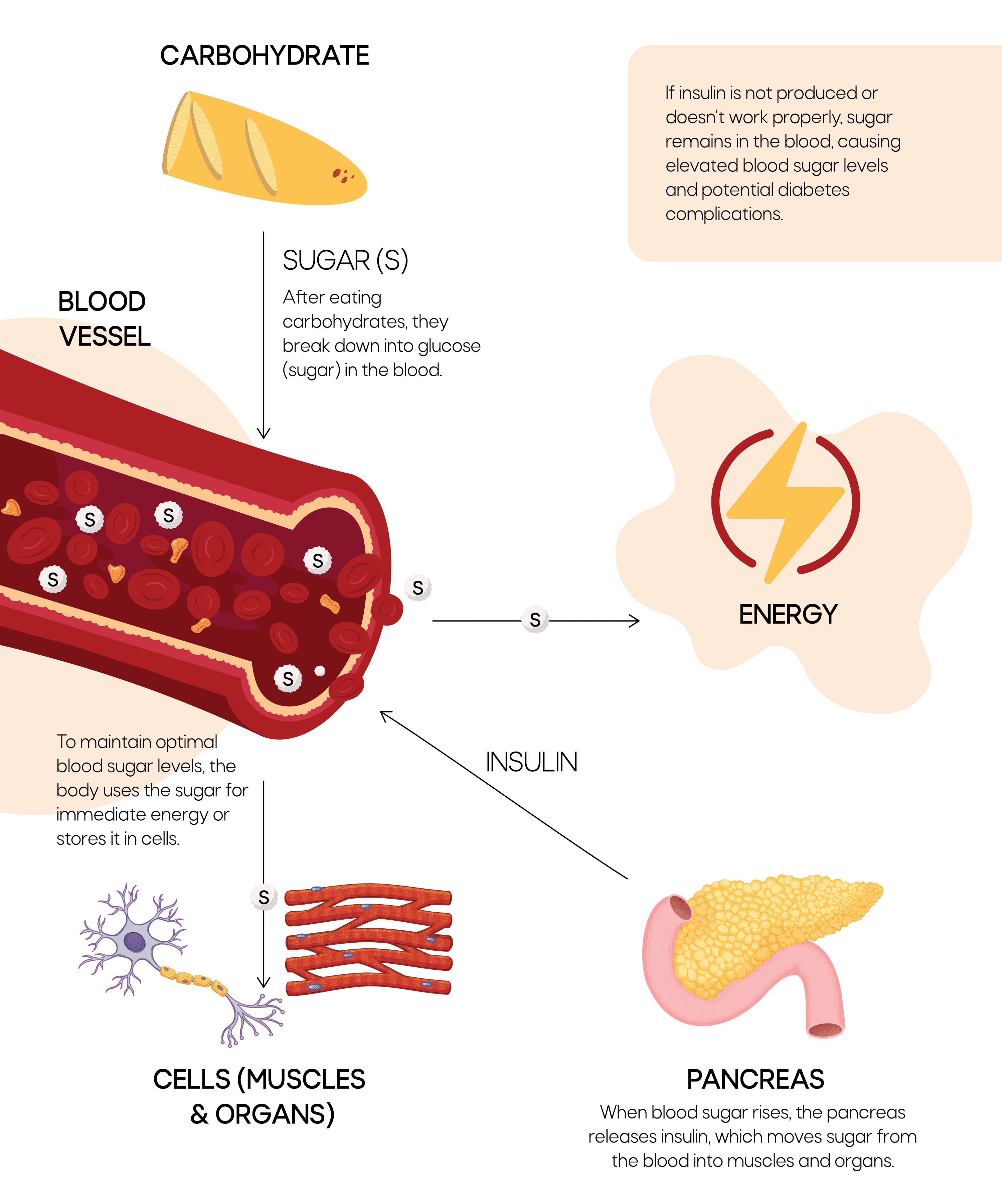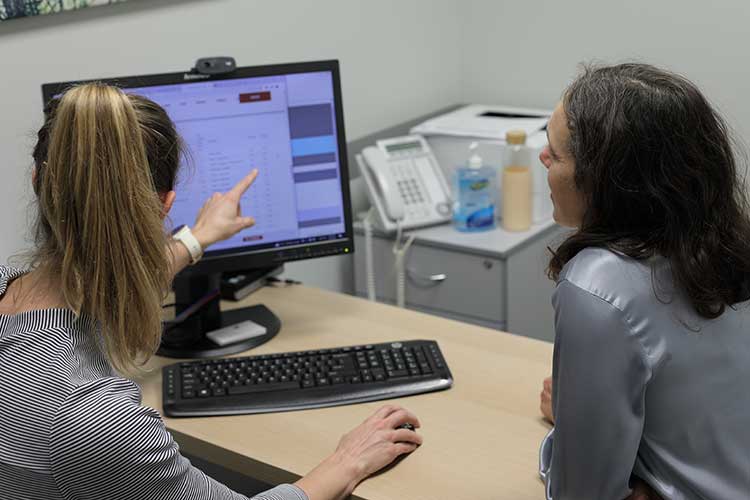Services > Allied Health > Dietetics > Diabetes
Diabetes
Diabetes Dietetic Services
Diabetes is a condition that manifests as high concentrations of sugar in the blood. There are two types of diabetes.
Type 1
Type one diabetes is classified as an autoimmune condition and usually develops at a young age. The patient’s immune system destroys the beta cells in the pancreas that produce insulin.
Insulin is a hormone that moves sugar from the bloodstream to the body’s cells to make energy.
So, the absence of insulin means that any sugar created from the digestion of carbohydrates remains in the blood. This increase in blood sugar is treated by injecting insulin. It is therefore important that people with type 1 diabetes match their insulin injections to the carbohydrates that they eat.
Type 2
Type two diabetes is usually diagnosed later in life, and develops when the body starts to become resistant to the insulin that the pancreas is producing. While the body is able to physically produce insulin, but the process of insulin moving sugar out of the bloodstream is not working properly.
Type 2 diabetes is usually managed through diet and lifestyle changes, largely through managing carbohydrate intake. Later stages of the condition may require oral medication and/or insulin injections.

Dietetic Support is Available
Diabetes (type I or II) is first diagnosed by a medical professional who will refer them to appropriate specialists, including Dietitians.
Following diagnosis, patients often work closely with a dietician because it can be quite well managed through diet. Managing diabetes does not necessitate eliminating all carbohydrates from the patient’s diet just because carbohydrates are broken down into sugar in the blood.
Rather, managing diabetes is about making sure that you’re eating the right type of carbohydrates that suit your energy requirements while ensuring your overall diet is balanced and healthful. Diabetes increases a patient’s risk of other illnesses such as heart disease which makes adjusting your diet to be protective, such as including heart healthy foods, of paramount importance.
Not all carbohydrates are equal
A gummy snake, a piece of whole grain bread and corn on the cob have one thing in common: each is a carbohydrate. Candy or lolly carbohydrates provide us with sugar, but that’s about it.
Carbohydrates such as whole grain bread are complex carbohydrates, which means that they are higher in fibre and protein and the sugar produced from their digestion is released slowly into the bloodstream.
As such, complex carbohydrates allow insulin to better do its job to gradually move sugar from the bloodstream.

Dietary Guidelines
Managing diabetes doesn’t require straying from the healthy eating principles recommended for the general populace; prioritising a healthy diet remains fundamental in diabetes management.
While there are misconceptions that having diabetes means giving up all sugar and carbohydrates, it’s simply about eating sensibly and mindfully.


Additional Support
People with diabetes are often referred to Exercise Physiologists. These professionals can assist in designing an exercise regimen tailored to an individual’s needs. Exercise not only burns energy but also helps in reducing blood sugar levels.
Furthermore, it aids in weight loss, which can enhance insulin sensitivity, thus managing blood sugar levels effectively.
Patients may also be referred to endocrinologists (a specialist in hormonal health) or diabetes educator. These individuals can help monitor and evaluate your blood tests.
Regular blood tests are crucial, especially since moderately high blood sugar may not manifest noticeable symptoms.
Monitoring Frequency:
For individuals newly diagnosed with diabetes, around three sessions are usually advised initially. Subsequently, annual check-ins are recommended. Additionally, individuals with diabetes may qualify for an enhanced primary care plan from a general practitioner (GP), enabling them to claim Medicare rebates for up to five sessions with allied health professionals.
At Healthcare on Collins, patients might receive two to three sessions with a Dietitian and a similar number of sessions with an exercise physiologist.


Support Groups and Organisations:
The Baker Heart and Diabetes Institute serves as an invaluable resource, offering extensive fact sheets on their website. Additionally, joining Diabetes Australia as a member will grant you access to a wealth of information and support.
Support for Family Members or Caregivers
Avoiding stigma around the condition is important – as diabetes diagnosis can sometimes be challenging for individuals. In a family or household setting, supporting dietary and lifestyle changes together is a great way to support loved ones.
Since there’s nothing inherently special about a diabetes diet — just the need for balance —adapting to healthier habits as a unit is the most supportive approach for a family member living with diabetes.
Getting Started with Healthcare on Collins
- ✔The Dietitians are University trained
- ✔The clinic is conveniently located in Melbourne’s CBD
- ✔In-person and Telehealth bookings are available
- ✔GP, EP and other services are available in-house
Just simply call the clinic or book online.
Call Us
(03) 9650 4284

